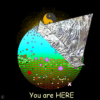Read Time:3 Minute, 50 Second
Based upon: Fear is Your Friend, by Ralph C. Smedley Toastmaster April 1949.
Fear is one of Nature’s best gifts to humanity.
We can’t survive without it. Our lives depends, very frequently, on the mechanisms of fear.
Fear is a Gift
-
Fear of physical harm and pain keeps us from careless behavior
-
Fear of the law helps to keep us from doing crime
-
Fear of public opinion holds us on our good behavior
-
Fear of want makes us thrifty – keeps us at work
Fear is our friend. Fear is a lifesaver.
Give thanks for our capacity for being afraid.
But fear is good only when it is under control. When fear is under control, it is a good servant.
When fear controls you, it degrades, hinders and oppresses like a tyrant.
Modern western civilization strives to remove the need to experience fear.
When is safety too much safety?
We are protected from experiencing true fear at every turn. (See references below)
-
Safety laws, rules, codes, regulations, permits, zoning, inspections, barriers, ramps,
-
Safety signs, warnings, cautions, reminders
-
Seat belts, helmets, air bags, child proof, tamper resistant, sealed in plastic, prohibited and banned products.
-
Food Stamps, Welfare, birth control, inoculations, chlorinated water,
-
School participation awards, no grades, discourage competition,
-
Microaggressions, bullying, wrong-think, censorship
on and on and on….
What is wrong with having too much safety in this land of the free?
Don’t we deserve to be safe?
Aren’t we entitled to be protected without personal effort?
We are steeped in the ideology of victimization, never allowed to blame a victim regardless their role in their own victimization.
We have become so confident in safety that when we experience adversity we go into a state of shock and indignation and look for who or what can be blamed for our misfortune?
Blame the curb we just stepped off of because it wasn’t painted yellow or red and not our own inattention.
Fear of consequences forces us to consider how could we have chosen better.
How can we conquor fear if we don’t experience it’s consequences?
Fear forces us to ask ourselves what role do we play in our own misfortune?
How can we improve our situation?
If we aren’t forced to experience and work through fear how can we learn to master fear?
Consider the 7 Deadlies
The Deadlies evolved over time to remind people to practice good behavior for the benefit of society as a whole, which in turn benefits our success.
7 deadly errors that harm society on the whole as well as ourselves
With advances in technology, each passing generation becomes more removed from acknowledgment of the nature and reality of the effects of the Deadlies and further away from personal responsibility for our own actions.
Life Happens between B, C & D
Birth & Death and Choice
Life is a continuous series of choices good, bad and ugly. What we do with choice determines our resilience or vulnerability to fear.
What happens when the experience of fear is removed on our behalf?
What happens when we are protected from making our own decisions?
What happens when the pathway is laid out before us and we are prevented from wandering through the weeds?
“We sit in relative safely in our human zoo, protected from many challenges we used to face. But the bars of the cage remind us of our limitations as domesticated creatures and we comfort ourselves with material possessions perhaps as a way to forget how the lack of adversity has also stripped our lives of meaning and purpose.” Psychiatrist Theodore Dalrympe pronounced Dal-rim-ple)
Back to Smedley’s advice
A degree of fear of the audience is good for the speaker. Fear provides energy.
-
Fear forces the speaker to prepare, to avoid looking ridiculous, of appearing as a failure.
-
Fear drives the speaker to work on the speech.
The same emotion which makes cowards of our legs, dries the mouth and starts knees to knocking can be used to add force to speech, to convert fear into enthusiasm and conviction in delivery.
“Don’t be afraid of fear. Conquer it. Control it. Use it.
The legs may be cowardly while the heart is strong. Then let the heart master the legs.
Fear is a good friend, even for the speaker. Be man enough to master the primitive impulses, and turn this great enemy into a faithful servant.
Make a friend of your fear.”
With every topic, issue and event, ask the questions:
Who, What, When, Where, Why and How before you press the Hot Button.

